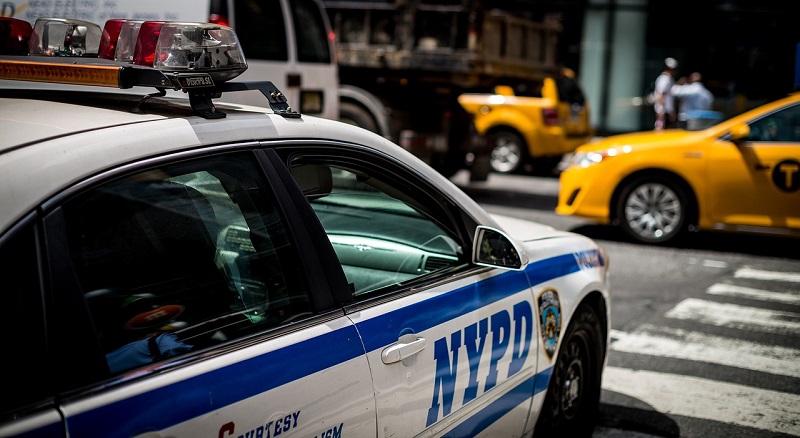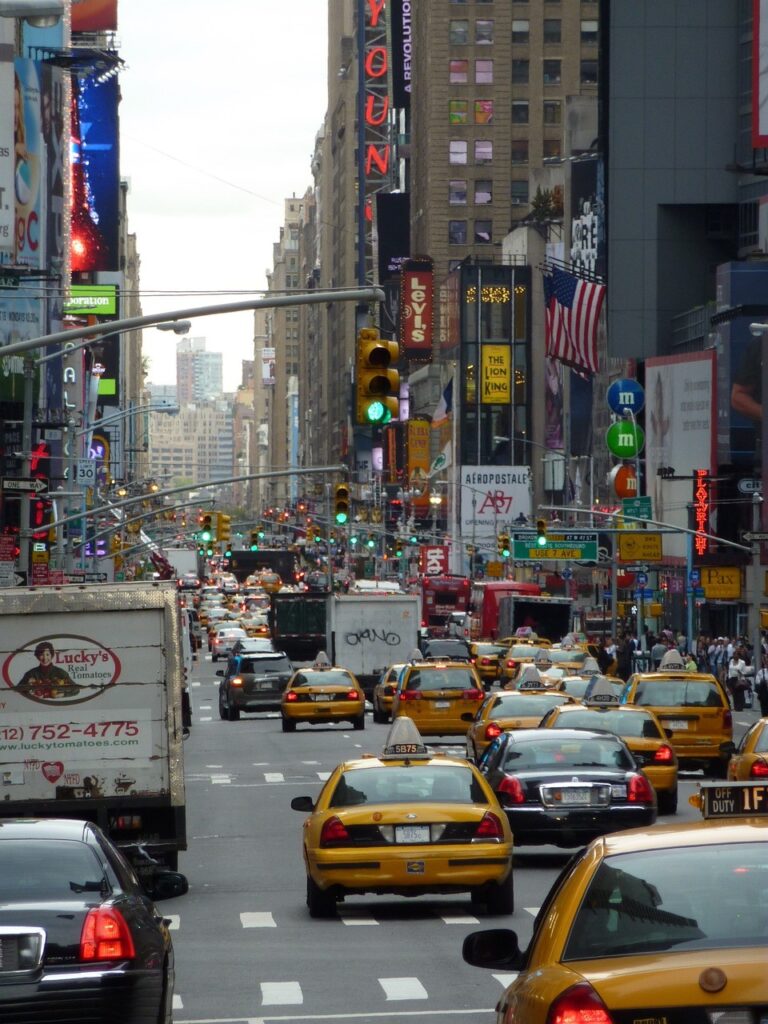
There have been many mind-boggling things emanating out of the Big Apple. One of the latest legislative ideas put forth by the New York City Council is a bill to diminish the decibel of all emergency vehicles, meaning the NYPD police cruiser sirens will have to be toned down, largely defeating the sounding device’s purpose of alerting vehicular traffic and pedestrians potentially impeding the pathway of advancing emergency responses by cops, firefighters, and paramedics.
In a metropolis such as New York City, whose high volume of autos routinely creates gridlocks as pedestrians cross streets in herd-like fashion, the whoop-whoop siren tones purposed for first responders to expedite calls for help in a city rife with rampant crime and life-threatening ordeals, needlessly delaying salvation efforts by cops and fire/rescue personnel.
Not only are the sirens to be hushed but they will also take on the siren sounds commonly heard in Europe. According to New York Post reporter Deidre Bardolf, the “European-style high-low siren is less shrill and contributes to less noise pollution.”
Given the increasing frequency of NYPD cops being assaulted and murdered, brother and sister officers in Gotham race across the five-county jurisdiction round the clock to aid their colleagues in distress, defining the “forthwith” request for the calvary to rush in and save the day.
Muting emergency sirens (paradox) is the brainchild of Councilwomen Carlina Rivera (D) and Gale Brewer (D), the former reportedly “once a dues-paying member of the Democratic Socialists of America” who also “voted to defund the police,” the New York Post offered.
“We know that New York is a loud city, but that doesn’t mean we have to suffer ear-piercing siren noise that disrupts daily life and neighborhood enjoyment while still allowing these vehicles to get through and get to people in time,” Councilwoman Rivera explained at a recent hearing.
Having been born and raised in NYC, I can attest the Big Apple —”the city that never sleeps”— is extremely loud. Although emergency vehicle sirens are a part of the din, it must be recognized that they are equipped with sound-making devices to capture the attention of anyone in the pathway of public safety vehicles urgently responding to many calls for help, as Rivera correctly measured, “in time.”

(Photo courtesy of Pixabay.)
If you have ever visited NYC, then you are aware of the chronic horn honking created by the seemingly infinite number of yellow taxi cabs traversing the streets at all hours.
With only one set of ears each, muting the waft of an overpopulated city is a prudent factor, but considerations must be made when life-threatening situations are chronically unfolding.
No one is desirous of din in Gotham, but emergency sirens are a necessity to provide timely arrivals of public safety professionals trained to mitigate crises of any kind. Moreover, one of the basic tenets of every police academy is emergency vehicle operations, but that skill is hindered by NYC’s notorious congestion issue, so much so that NY initiated “congestion pricing plans” for motorists:
Getting to scenes is surely slowed by muted siren sounds, as gobs of cars, trucks, buses, cabs, bicyclists, and pedestrians blanket the city with bustle, the hustle of which is expectedly captivated and redirected when sirens are overheard approaching.
Before this proposed bill, I was taken aback by various pieces of footage from street journalists recording how automobiles in New York City can not get out of the way due to the enormous volume taking up just about every inch of real estate. Many of these posted videos showed how hampered NYPD cops are when navigating city streets in emergency mode. Diminished volume only adds to that pre-existing mode of travel in the Big Apple.
Opposing the bill, Councilwoman Joann Ariola spoke common sense, feeling siren-sound reduction would “defeat their purpose.”
Ariola added: “We need to be taking measures to save lives here, and the louder sirens can give emergency personnel a few extra, potentially vital seconds to get to a victim and successfully rescue them.”
How low are the sirens projected to be?
The bill calls for a siren to be no higher than 90 decibels which (the standard is 120 decibels), according to Washington Examiner reporter Asher Notheis, is “slightly louder than the noise a leaf blower or gas-powered lawn mower makes but is slightly quieter than the noise of what a motorcycle makes.”
I understand that those details are derived from the Centers for Disease Control and Prevention (CDC).
Curiously, the basis of this bill seems to engender public health woes, citing a 2016 study that claimed coronary heart disease and hypertension are lessened by reduced noise levels in one’s environment. All understandable points. However, if I had to choose one exception for the absolute right reasons, it is first responders swiftly arriving at scenes of barbaric proportions, the least of my concerns being the tell-tale signs telegraphing that help is on the way/near: Sirens.
Incidentally, some of my police career entailed light-duty stints whereby I was assigned fleet maintenance responsibilities, including emergency vehicle equipment installation for our newest police cruisers. The lightbars and sirens packages for each cruiser are received from emergency vehicle equipment manufacturers whose specs are rather standard. Electronics technicians can switch out a siren from one cruiser to another without having to recalibrate each one with reduced decibels.
As a mostly midnight-shift cop who found himself in some pretty hairy situations requiring forthwith police backup, the siren sounds became my fave tune on many occasions.
This proposed bill seems to be another foolish maneuver and power grab by politicians hell-bent on devaluing law enforcement’s crucial purpose and life-saving feats while also forfeiting common sense.
Via years of personal experience, the gargantuan culprits in the excessive noise department are NYC subway trains (shrill) and the endless stream of taxis vying for space by constantly contributing to the concert on horns. Priorities?